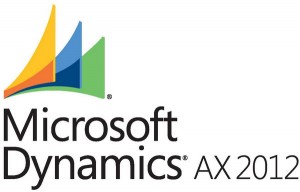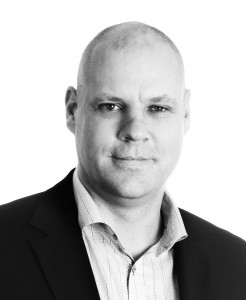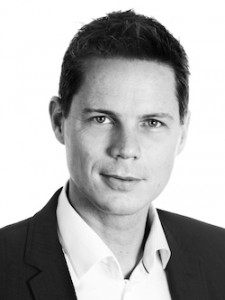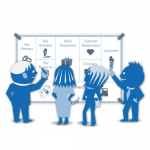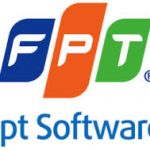The Scandinavian Dynamics AX Growth Comet
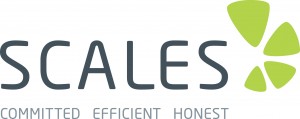 The Scales Group, with employees and customers in Denmark, Norway and Sweden opened their doors for business in November 2011. In less than three years the company has grown from the four founders in Copenhagen, Denmark to 70 people in the three Scandinavian countries. The prospect of passing the €10M revenue mark for the calendar year 2014 including yielding a solid bottom line is in sight.
The Scales Group, with employees and customers in Denmark, Norway and Sweden opened their doors for business in November 2011. In less than three years the company has grown from the four founders in Copenhagen, Denmark to 70 people in the three Scandinavian countries. The prospect of passing the €10M revenue mark for the calendar year 2014 including yielding a solid bottom line is in sight.
Is there room for one more?
If you had asked an ERP software industry expert in the fall of 2011 if there was room for an additional Microsoft Dynamics AX value added reseller in the Danish market, then I am sure that the answer would have been a very clear no.
Denmark is the home of Dynamics AX. Erik Damgaard originally developed the product in the days of Damgaard Data. AXAPTA, which was the chosen name, was released in Denmark and the USA in March 1998.
Thirteen years later (2011) there was an established value added reseller channel of 20-25 companies in Denmark including giants such as EG A/S (>1.000 people in the Nordics), CGI (68.000 people in 40 countries), Columbus IT Partner A/S (800 people in 10 countries) and Avanade (21.000 people in 20 countries).
How could there possibly be room for yet another value added reseller with the exact same product?
Entrepreneurs with 14 years of experience
The four founders Hasse Bergman, Jesper Outze, Peter Sjøgren and Anders Warncke are not exactly rookies in the Dynamics AX domain. Hasse and Jesper started HOB Business Solutions in 1998 making bets on Damgaard’s new AXAPTA as the ERP system of the future. Peter Sjøgren and Anders Warncke joined HOB before Avanade acquired the company in 2007.
After four years with Avanade, Hasse, Bergman and Jesper Outze were free to pursue new business ventures and decided to continue what they do best namely serve enterprise customers with Dynamics AX implementation and support.
The opportunity and the opening in the market
Yes, the Dynamics AX market in Denmark is rather crowded, says Hasse Bergman, CEO of the Scales Group, but we had quite a few ideas to how things could be done differently and provide more value to staff and customers.
Microsoft released a new version of Dynamics AX in September 2011. AX2012 was a major release with many changes and additions plus a revised market positioning from Microsoft. The four founders invested substantial time and effort getting intimately familiar with AX2012 and went to market with all the benefits of having no legacy issues, but lots of experience and expertise. This approach paid off and they managed to win a series of new projects in a very short period of time.
The Scales Group followed the positioning guidelines suggested by Microsoft and approached the upper segment of the market where they mainly compete with the bigger companies.
This approach proved to be very successful.
Culture eats strategy for breakfast
Running a successful value added reseller business requires the ability to win profitable projects on the one side and attract the best people on the other side. Managing this balance is the key to profitable growth.
Already in the HOB days we decided not to have a sales and marketing department, says Jesper Outze, VP of strategy with the Scales Group. We have to build awareness and contacts making sure that the projects come to us when they are ripe for the Request for Proposal phase. All of us with external customer facing activities are in sales. Our brand is created through our external performance demonstrating solid insight and experience. In this small market our best marketing channel is our satisfied customers and ourselves.
The revenue of the Scale Group is 90% services and 10% software (licenses and maintenance). There is no way the margin on the software can compensate for mistakes in the services part of the business. The services part is 90% people and 10% processes.
Attracting the best people, as we need them, is a challenge for all of us Dynamics AX resellers, says Hasse Bergman. At Scales we obviously have the advantage of being an owner-managed company. We have no bureaucracy, can make fast decisions and can delegate much more responsibility than you can do in a big multinational organization. We are very conscious about this culture and have also included additional 13 staff members as shareholders in the group.
The Scales Academy
Compensating for the serious lack of experienced Dynamics AX people in the Danish market, the Scales Group established their own trainee program. In November 2012 and the summer of 2013 they took 11 people with master degrees in engineering or business administration through a 6 months training program before assigning them to customer projects. Today all 11 are regular application or technical consultants in the organization.
The strategy for the future
The Scales Group has decided not to go the ISV way as most of their competitors choose. They do not and will not develop ISV solutions on top of Dynamics AX.
We learned that lesson already in the HOB days, says Jesper Outze. Being an ISV and a VAR are two completely different business models that do not mix very well. We have decided to be a 100% VAR helping our customers adapt to the standard functionality. If it makes sense to add ISV functionality then we prefer sourcing this from a 3rd party that has specialized in the domain and can demonstrate a large customer base.
Based on their experience from Avanade, Hasse and Jesper believe that it is possible to build a Scandinavian organization without the traditional country operations and local management teams.
The company currently has offices in Copenhagen, Frederica, Aarhus, Aalborg and Oslo. Their most recent Swedish customer Alfa-Laval is running the project out of their Lund office in Skåne and they are serviced from the Copenhagen office. A Stockholm office is in the plan for Q4 this year.
At a recent internal strategy seminar the objectives and the path for the coming years were discussed.
Over the next couple of years we will continue building a solid and profitable Scandinavian Dynamics AX value added reseller business, says Hasse Bergman. We have tried a lot over the years and staying independent with a very flat and lean organization is good for us, for our people and for our customers. That’s what we will do and we normally deliver on our promise.
Full disclosure
The author of this article was shareholder and CEO of HOB Business Solutions from November 2003 to November 2004.



